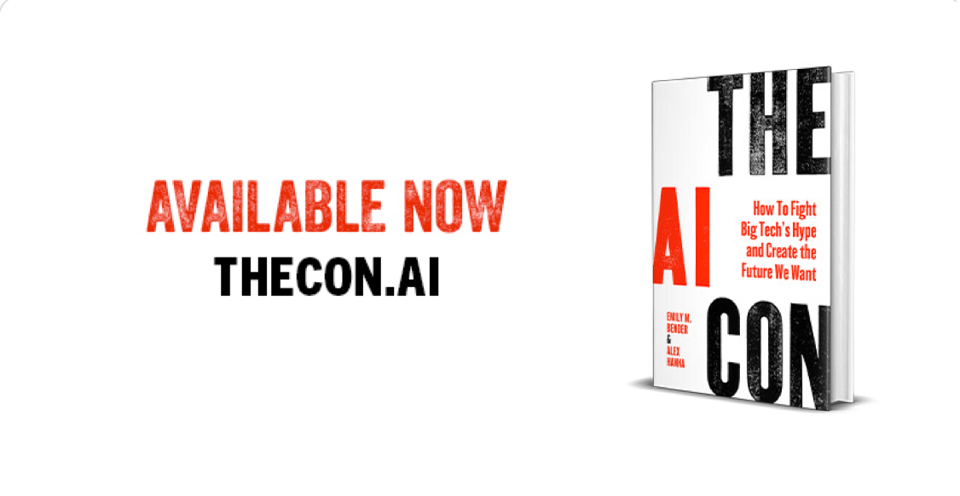The AI/Fascism Nexus
The AI/Fascism Nexus
By Alex
Oops, we did it again. I can't say that I'm terribly surprised, as Harris ran a center right campaign and tossed a mighty chunk of the coalition under the bus while courting Liz Cheney and her war criminal father.
Of course, the imbrication with the tech industry in this win runs deep. VP-elect JD Vance was famously formerly a principal at Peter Thiel's Mithril Capital and maintained a connection to the alt-right of the Valley. And while much of the attention has been at the top of the ticket, Bad Things are happening in San Francisco politics which reflect the national rightward turn spurred by tech money. Effective accelerationist and Y Combinator lead Garry Tan's GrowSF and venture capitalist Michael Moritz's TogetherSF contributed millions towards pro-business and anti-street encampment candidates and measures. Across the bridge, the effort to recall Oakland mayor Sheng Thao and DA Pamela Price look likely to succeed, bankrolled in part by tech venture capitalist Ron Conway and hedge fund manager Philip Dreyfuss. Other than the influx of VC money nationally and locally, crypto spending in the election paid off in a big way, including unseating incumbent Democratic senator Sherrod Brown in Ohio.
Tech money came through in a big way, although this post isn't (primarily) about that. It's about how AI and authoritarian go hand-in-hand, and how the big tech courting of Trump goes beyond a simplistic capitalist calculation that is anti-regulation (bye bye Lina Khan and the National Labor Relations Board) and economically laissez faire. A central requirement of generative AI, despite the overtures around "democratization", is the accumulation of economic power, data, and compute into the hands of the few. Although the likes of Elon Musk, Jeff Bezos, and Mark Zuckerberg have openly embraced the president-elect, the rest of the AI cadre--OpenAI, Anthropic, and others--are likely to follow suit.
This isn't a particularly new claim: Dan McQuillan has discussed the ways in which AI is a centralizing force that promotes an authoritarian bent, and that the techniques of the reduction to quantifiable elements put the technology at odds with democracy. And I agree with Dan: how can a set of technologies premised on massive data collection, concentration of compute, the need to unretire coal fired power plants and the Three Mile Island nuclear plant to feed insatiable power demands, and a huge amount of specialized equipment be anything but authoritarian?
Joseph Weizenbaum, writing in 1976, comes to a somewhat similar conclusion. Speaking on the necessity of the computer's creation in rebuilding a post-World War II society:
[t]he computer did arrive "just in time." But in time for what? In time to save--and save very nearly intact, indeed, to entrench and stabilize--social and political structures that otherwise might have been either radically renovated or allowed to totter under the demands that were sure to be made on them. The computer, then, was used to conserve America's social and political institutions. It buttressed them and immunized them, at least temporarily, against enormous pressures for change. (pp. 31, Computer Power and Human Reason)
Weizenbaum is writing on the heels of monumental change in the US and elsewhere: the defanging of the Civil Rights Movement, anti-Vietnam War protests, the infiltration and decline of the Black Panther Party, the 1968 encampments at Columbia, protests at the DNC in Chicago, and massive youth protests in France. But his claims about the fundamental conservativeness of computation could have been written last week. We could imagine today's so-called artificial intelligence, based on tranches of stolen data by a handful of companies, would have received nothing but scorn and alarm from the creator of the world's first chatbot.
Yes, there is an economic incentive to the election of Trump by those at the commanding heights of Silicon Valley power. But to reduce it purely to materialism is missing a strong part of the story, namely about AI's own operation as an ideological apparatus which encourages power consolidation.
McQuillan concludes his book with a discussion of what it'd mean to have community-based technology: a major sea change in governance, including community groups and small worker councils, who would be able to ensure that technology actually works for people. Weizenbaum discusses how the development of the computer has likely "closed certain doors that were once open" (pp. 38). I think we need to continue to ask what technologies enable fascism at their foundations and which actually broaden democratic participation. As we move into Trump II, let's kick some doors back open.
